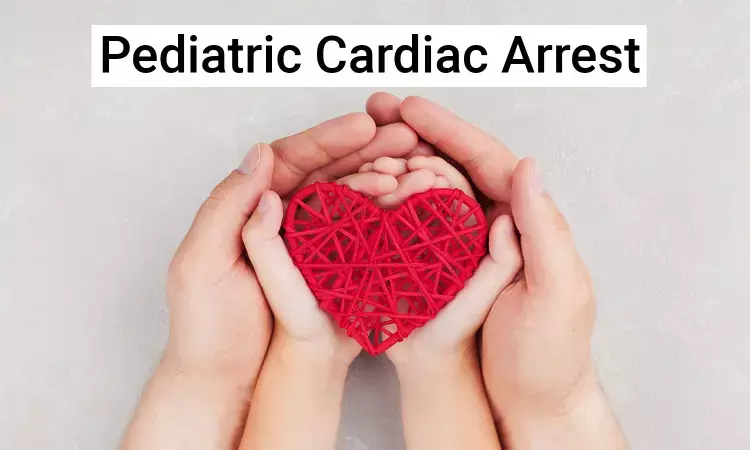- Home
- Medical news & Guidelines
- Anesthesiology
- Cardiology and CTVS
- Critical Care
- Dentistry
- Dermatology
- Diabetes and Endocrinology
- ENT
- Gastroenterology
- Medicine
- Nephrology
- Neurology
- Obstretics-Gynaecology
- Oncology
- Ophthalmology
- Orthopaedics
- Pediatrics-Neonatology
- Psychiatry
- Pulmonology
- Radiology
- Surgery
- Urology
- Laboratory Medicine
- Diet
- Nursing
- Paramedical
- Physiotherapy
- Health news
- Fact Check
- Bone Health Fact Check
- Brain Health Fact Check
- Cancer Related Fact Check
- Child Care Fact Check
- Dental and oral health fact check
- Diabetes and metabolic health fact check
- Diet and Nutrition Fact Check
- Eye and ENT Care Fact Check
- Fitness fact check
- Gut health fact check
- Heart health fact check
- Kidney health fact check
- Medical education fact check
- Men's health fact check
- Respiratory fact check
- Skin and hair care fact check
- Vaccine and Immunization fact check
- Women's health fact check
- AYUSH
- State News
- Andaman and Nicobar Islands
- Andhra Pradesh
- Arunachal Pradesh
- Assam
- Bihar
- Chandigarh
- Chattisgarh
- Dadra and Nagar Haveli
- Daman and Diu
- Delhi
- Goa
- Gujarat
- Haryana
- Himachal Pradesh
- Jammu & Kashmir
- Jharkhand
- Karnataka
- Kerala
- Ladakh
- Lakshadweep
- Madhya Pradesh
- Maharashtra
- Manipur
- Meghalaya
- Mizoram
- Nagaland
- Odisha
- Puducherry
- Punjab
- Rajasthan
- Sikkim
- Tamil Nadu
- Telangana
- Tripura
- Uttar Pradesh
- Uttrakhand
- West Bengal
- Medical Education
- Industry
For pediatric in-hospital cardiac arrest which is better-Lidocaine or amiodarone

A study published in Journal Resuscitation has found that that there was no significant difference in clinical outcomes between those receiving lidocaine compared to amiodarone In children with cardiac arrest receiving antiarrhythmics for a shockable rhythm.
Lidocaine and amiodarone are both included in the pediatric cardiac arrest guidelines as treatments of shock-refractory ventricular fibrillation or pulseless ventricular tachycardia, although there is limited evidence to support this recommendation.
A study was conducted to find out which of lidocaine or amiodarone is acceptable and preferred over another in PALS for shock-refractory ventricular fibrillation. This was a propensity matching study based on a pediatric in-hospital arrest registry over an 18 year period with shock-refractory v-fib or pulseless v-tach.
The researchers included pediatric patients (≤18 years) with an in-hospital cardiac arrest between 2000 and 2018, who presented with an initial or subsequent shockable rhythm (ventricular fibrillation and pulseless ventricular tachycardia) in this cohort study. A total of 365 patients were available for the analysis, of which 180 (49%) patients were matched on the propensity score. The median age in the raw cohort was 6 (quartiles, 0.5-14) years, 164 (45%) patients were female, and 238 (65%) patients received an antiarrhythmic for an initial shockable rhythm.
They matched 90 patients in each group, with the only difference being the administration of lidocaine or amiodarone. I won't put all the risk ratios or 95%CI, as they were almost all near 1.
There was no difference in return of spontaneous circulation, 24-hour survival, survival to discharge, or survival with favourable neurological outcome comparing lidocaine to amiodarone. The results remained consistent in multiple sensitivity analyses.
Again, despite this being a large registry with 18 years of data, the total number of patients they were able to include was small. Although propensity matching helps, there is always a danger of confounding. However, in this study, it looks like it really doesn't matter which agent you choose for the next round of PALS if defibrillation fails.
The researchers concluded that there was no significant difference in clinical outcomes between those receiving lidocaine compared to amiodarone In children with cardiac arrest receiving antiarrhythmics for a shockable rhythm.
For further reference log on to :
Dr Kamal Kant Kohli-MBBS, DTCD- a chest specialist with more than 30 years of practice and a flair for writing clinical articles, Dr Kamal Kant Kohli joined Medical Dialogues as a Chief Editor of Medical News. Besides writing articles, as an editor, he proofreads and verifies all the medical content published on Medical Dialogues including those coming from journals, studies,medical conferences,guidelines etc. Email: drkohli@medicaldialogues.in. Contact no. 011-43720751


